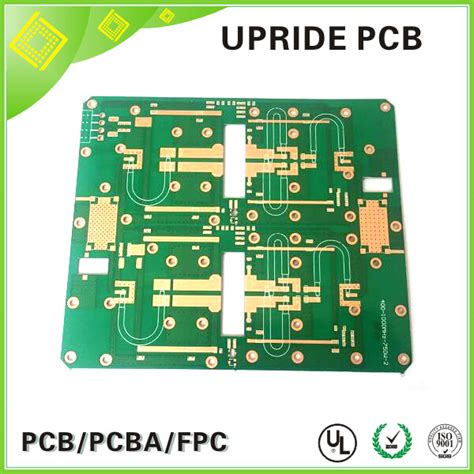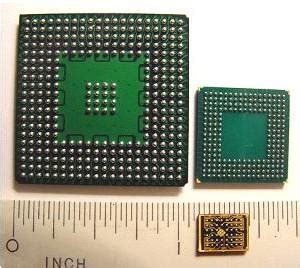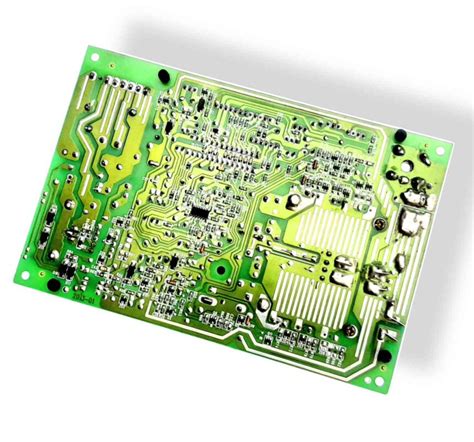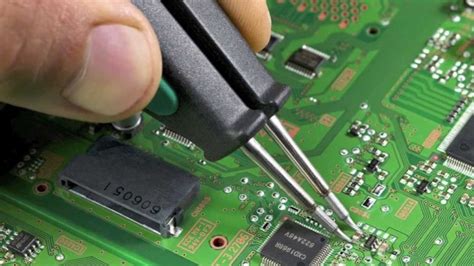Choosing a High Frequency PCB Manufacturer for Your Needs
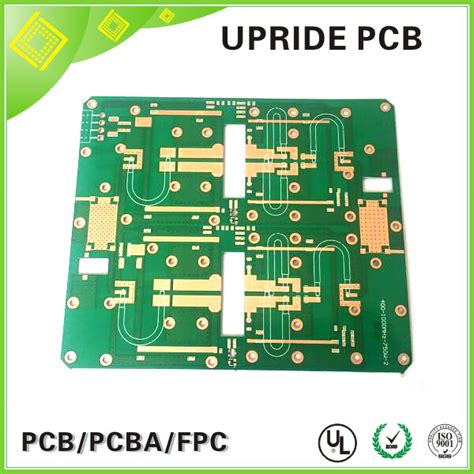
Key Takeaways
When considering your options for a high frequency PCB manufacturer, it is essential to keep several factors in mind to ensure that your specific needs are met effectively. First and foremost, the material quality plays a pivotal role in the performance of your PCBs. Different applications may necessitate varied materials, so you should assess the manufacturer’s ability to provide materials suited for high-speed communication. Additionally, understanding the production capabilities of different pcb manufacturing companies can provide insight into whether they can handle your project’s scale and complexity. These companies often employ advanced technologies that can significantly influence the efficiency and speed of production.
Moreover, evaluating the manufacturer’s industry expertise is vital; their experience can impact both the design quality and production turnaround times. A manufacturer with a solid background in high frequency PCB production will likely understand the necessary specifications, such as impedance control and signal integrity. It would also be prudent to consider pcb manufacturing cost, as this will play a crucial role in your budgeting process. Ensure that you inquire about potential hidden costs that might arise during production.
Don’t overlook the importance of quality assurance processes; these are critical in maintaining consistency throughout batches. Innovative approaches can also enhance performance and functional advantages for your boards, so ask about their commitment to advancement within their pcb manufacturing business. Lastly, effective customer support and clear communication from your manufacturer can make all the difference when navigating challenges or adjustments during production.
For further insights on quality PCB services, you may explore additional resources at Andwin PCB.
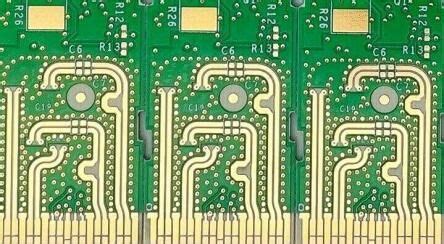
Choosing the Right Materials for High Frequency PCBs
When selecting materials for your high frequency PCBs, it is essential to consider their unique properties to ensure optimal performance in your applications. The right materials can significantly impact the signal integrity, attenuation, and overall efficiency of your circuit board. One common choice among pcb manufacturing companies is low-loss dielectric materials, which can minimize signal degradation at high frequencies.
A reliable indicator of material performance is its dielectric constant (Dk) and loss tangent (Df) properties. For instance, materials like PTFE (Teflon) or Ceramic-filled epoxy are often used due to their superior electrical characteristics. Additionally, consider how different substrates, such as FR-4 or higher-end materials, affect the overall functionality and costs associated with the pcb manufacturing cost.
| Material Type | Dielectric Constant (Dk) | Loss Tangent (Df) | Typical Use Cases |
|---|---|---|---|
| FR-4 | 4.5 | 0.02 | General-purpose PCBs |
| Rogers 4003 | 3.48 | 0.0027 | High-frequency applications |
| PTFE | 2.1 | 0.0002 | Microwave and RF circuits |
Moreover, understanding the compatibility of these materials with your specific pcb manufacturing business processes is critical. Each material has its unique processing requirements which may affect timelines and costs during the production phase. Therefore, when partnering with a manufacturer, ensure that they have the necessary capabilities and experience in handling your chosen materials.
“Selecting the right material is as crucial as choosing the right manufacturer.”
By focusing on high-quality materials tailored for your specific communication needs, you can optimize both performance and reliability in your high frequency PCB projects. Remember that a well-informed choice not only enhances product efficiency but also ensures that you achieve lower long-term operational costs associated with performance degradation or failures in high-speed scenarios.
Understanding Production Capabilities in High Frequency PCB Manufacturing
When selecting a high frequency PCB manufacturer, it is imperative to assess their production capabilities as these can greatly impact the quality and performance of your final product. A manufacturer that utilizes advanced technologies and automated processes can often produce high frequency PCBs with greater precision. It is crucial to inquire about the specific PCB manufacturing technologies they employ, such as multilayer capabilities, laser drilling, and precision etching. These technologies are essential for achieving the necessary specifications required for high-speed communication applications.
Moreover, you should evaluate their production volume capacity to ensure they can meet your project deadlines. A reliable manufacturer typically offers a scalable solution, allowing you to adjust your orders based on your needs. This flexibility is particularly important in the fast-paced environment of the PCB manufacturing business, where market demands can shift rapidly.
Understandably, pcb manufacturing costs play a significant role in decision-making but do not overlook the importance of overall quality. A balance between cost and high-quality output should guide your choice; ultimately, investing in a manufacturer with robust production capabilities may lead to greater long-term savings by reducing defects and ensuring reliability. By closely examining these production capabilities, you will be better equipped to select a manufacturer that aligns with your specific requirements and enhances your project’s success.
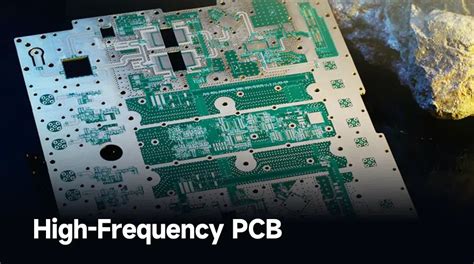
Evaluating Industry Expertise: Why It Matters for Your PCB Needs
When selecting a high frequency PCB manufacturer, evaluating their industry expertise is crucial for your specific requirements. The right manufacturer will possess a deep understanding of the unique challenges associated with high frequency PCB manufacturing. It’s essential to look for companies that have demonstrated experience in producing PCBs that meet stringent performance criteria. These manufacturers typically keep abreast of the latest advancements in materials and technology, which can significantly impact the overall quality and efficiency of your boards.
Consider the manufacturer’s track record in various applications, particularly within sectors like telecommunications and aerospace, where precision is vital. A knowledgeable manufacturer will not only understand the technical specifications but also how to optimize pcb manufacturing processes to suit your needs, ensuring that timeframes and costs are managed appropriately. This brings value to your project by minimizing the risk of delays or failures that could arise from working with companies lacking substantial experience. Furthermore, when assessing pcb manufacturing companies, prioritize those that have a solid reputation for innovation, as this indicates a commitment to staying at the forefront of technology trends within the industry.
Ultimately, choosing a manufacturer with significant industry expertise empowers you to navigate complexities in the pcb manufacturing business effectively. This can translate into reduced overall pcb manufacturing costs, improved product reliability, and enhanced performance characteristics for your end products. Therefore, conducting thorough research into a manufacturer’s history and capabilities is an indispensable step in ensuring that you partner with an entity that aligns well with your high-speed communication goals.
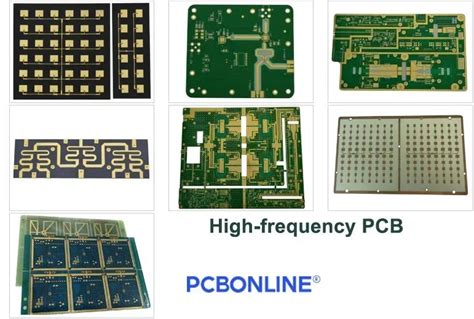
Key Features of High Frequency PCBs for Speed and Efficiency
When selecting a high frequency PCB manufacturer, it is crucial to understand the key features that can significantly impact speed and efficiency in your projects. High frequency PCBs are specifically designed to minimize signal loss and reduce electromagnetic interference, making them a vital component in modern electronic devices. The choice of materials is paramount; you’ll want to ensure that the manufacturer uses high-quality substrates with excellent dielectric properties. These materials directly affect the PCB manufacturing cost, so balancing quality with budget is essential.
In addition to material selection, consider the production capabilities of the manufacturer. A robust pcb manufacturing business should have advanced technology that allows for precision in creating complex circuit designs tailored for high-speed operations. Look for companies that employ state-of-the-art techniques, as these can drastically improve your PCB’s performance under high frequency conditions.
Moreover, it’s essential to examine the experience and expertise of potential pcb manufacturing companies in your specific industry. Their familiarity with industry standards and challenges can greatly enhance your project’s success by ensuring efficient production cycles and reduced time-to-market. Ultimately, selecting a manufacturer that demonstrates a clear understanding of these key features will help you achieve optimal performance from your high frequency PCBs while keeping an eye on overall costs.
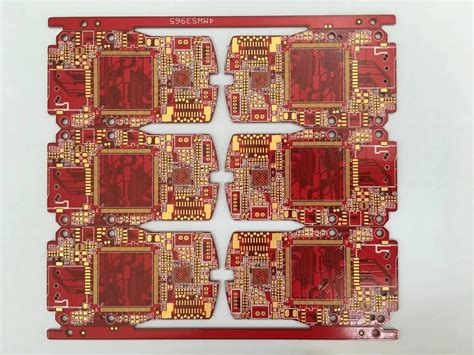
Cost Considerations When Selecting a High Frequency PCB Manufacturer
When evaluating pcb manufacturing options, it’s crucial to understand how costs can vary significantly among different pcb manufacturing companies. The pcb manufacturing cost should not be the only factor you consider; instead, you should look at the overall value that a manufacturer offers. Cheaper options may lead to compromises in material quality or production capabilities, which can ultimately impact the performance of your high frequency PCBs. In your assessment, consider whether the manufacturer has experience in high frequency applications and what innovations they bring to their pcb manufacturing business. This due diligence will not only help you manage costs effectively but also ensure that the final product meets your specific requirements for high-speed communication. Prioritizing manufacturers who offer robust warranty policies and quality assurance processes may entail higher upfront costs but could save you significantly on potential issues down the line. Always aim for a balance between cost, quality, and performance to make an informed decision that aligns with your project’s budget and demands.
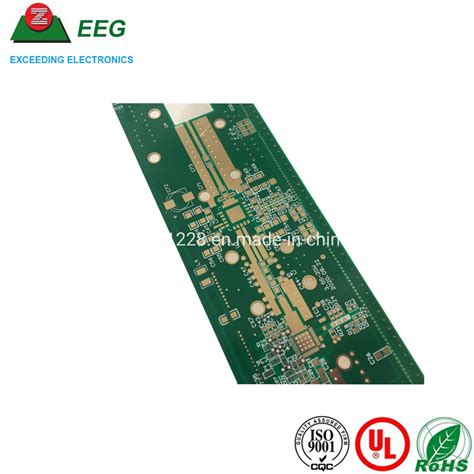
Quality Assurance Processes in High Frequency PCB Production
When it comes to high frequency PCB manufacturing, the importance of rigorous quality assurance processes cannot be overstated. These procedures ensure that each board meets the specific standards required for high-speed communication applications. To begin with, a reputable PCB manufacturing company will implement regular testing throughout the production phases. This includes both in-process and final inspections that check for adherence to design specifications, dimensional accuracy, and overall performance characteristics.
Additionally, utilizing advanced equipment for test measurements is crucial to verify the electrical properties of high frequency PCBs. Tests such as insertion loss, return loss, and intermodulation distortion are standard practices that can provide insight into the PCB’s performance under high-frequency conditions. It’s also important to assess the materials used; only those that meet the necessary electromagnetic characteristics should be selected to avoid signal degradation.
Moreover, considering the pcb manufacturing cost, investing in high-quality materials and testing processes may initially seem higher but often leads to reduced long-term costs through improved product reliability and performance. The emphasis on quality assurance not only enhances performance but also minimizes potential issues that could arise during operation, which ultimately underlines why selecting an experienced manufacturer is paramount for your pcb manufacturing business. By ensuring these quality checks are in place, you can significantly mitigate risks associated with subpar products and contribute to effective and efficient high-speed communications solutions.
The Role of Innovation in High Frequency PCB Development
In the rapidly evolving field of high frequency PCB manufacturing, innovation plays a crucial role in meeting the demands of modern technology. As you explore pcb manufacturing companies, you’ll notice that those who prioritize innovative approaches are often at the forefront of advancements. This is not just about enhancing performance; it’s also about adapting to new materials and techniques that can lead to significant reductions in pcb manufacturing costs. For instance, companies investing in new types of substrates or manufacturing processes can dramatically improve the efficiency and effectiveness of high frequency PCBs, which are essential for applications such as telecommunications and aerospace.
Furthermore, incorporating innovation into your pcb manufacturing business can lead to improved designs that cater to high-speed communication needs. This is achieved through advanced simulation tools and prototyping processes that ensure the final product meets stringent performance criteria. When selecting a manufacturer, it’s beneficial to inquire about their commitment to innovation and how they stay ahead of industry trends. Ultimately, a manufacturer that emphasizes innovation is more likely to deliver high frequency PCBs that not only meet but exceed your expectations, ensuring reliability in your technological applications.
Assessing Customer Support and Communication with Your Manufacturer
When selecting a high frequency PCB manufacturer, assessing their customer support and communication capabilities can greatly influence your overall experience. It is essential to engage with pcb manufacturing companies that prioritize open lines of communication, as this will facilitate the smooth progression of your projects. Look for manufacturers who are responsive and willing to listen to your specific needs, ensuring they understand your requirements for high-speed communication applications.
During the initial stages of your inquiry, pay attention to how swiftly they address your questions or concerns. Effective customer support not only improves the efficiency of the pcb manufacturing business but also reflects a commitment to quality and service. Furthermore, a manufacturer that provides full transparency regarding pcb manufacturing costs will help you make informed decisions while budgeting for your projects.
Also, assess whether they offer dedicated representatives who can guide you through the complexities involved in high frequency PCB production. An experienced account manager can bridge any gaps between technical specifications and production realities, which is invaluable when dealing with intricate designs that demand precision. Ultimately, by choosing a partner who emphasizes robust customer support and effective communication, you pave the way for successful collaboration that meets your specific needs in high frequency PCB manufacturing.
Conclusion
In conclusion, selecting the right high frequency PCB manufacturer is critical for the success of your pcb manufacturing business. By carefully considering factors such as material quality, production capabilities, and industry expertise, you can establish a partnership that meets your specific needs for high-speed communication. Remember that not all manufacturers offer the same level of service or technology, so it’s essential to assess their capabilities thoroughly. This will not only enhance your product’s performance but also optimize your overall pcb manufacturing cost. Additionally, consider the manufacturer’s customer support and communication strategies; these elements can significantly impact your satisfaction and project timeline. A strong relationship with a dedicated manufacturer can lead to innovations in your products and processes, ensuring that you stay ahead in a competitive market. By implementing these strategies, you can make informed decisions that support your goals and drive success in your pcb manufacturing efforts.
FAQs
What is the importance of selecting the right high frequency PCB manufacturer?
Selecting the right high frequency PCB manufacturer is crucial because it directly impacts the performance and reliability of your electronic devices. Poor quality manufacturing can lead to signal degradation, which is detrimental for high-speed communication systems.
How can I assess the quality of materials used in PCB manufacturing?
To assess the quality of materials in pcb manufacturing, inquire about the specifications of materials used and request certifications. Aim for manufacturers who use high-grade substrates, which are essential for maintaining signal integrity in high frequency applications.
What are typical production capabilities of leading PCB manufacturing companies?
Leading pcb manufacturing companies often offer a range of production capabilities, including advanced printed circuit board designs, multilayer construction, and rapid prototyping. Understanding these capabilities helps you estimate how well they can meet your specific project requirements.
How does pcb manufacturing cost vary with high frequency PCBs?
The pcb manufacturing cost can vary significantly based on material requirements, complexity of the design, and production volume. High frequency applications often require more specialized materials and processes, which may increase overall costs.
What role does industry expertise play in PCB manufacturing business selection?
Industry expertise is vital when selecting a pcb manufacturing business, as manufacturers with significant experience in high frequency applications are more likely to understand your specific needs and provide tailored solutions that ensure optimal performance.
For more detailed insights into high frequency PCB design and to explore potential manufacturers, please click here: Andwin PCB Manufacturing.

